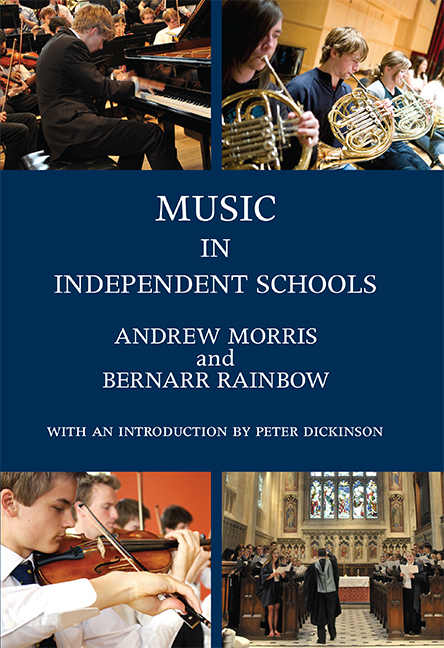General Editor's Foreword
Published online by Cambridge University Press: 05 October 2014
Summary
This book records the musical achievements of Independent Schools. As Rainbow's historic section shows, it was a long struggle to get music accepted as a fit study in a public school curriculum. George Dyson, in his 1952 address to the MMA (pp. 104–8 below) recalled the low status of the music staff: ‘When I went to Marlborough in 1911, I was the first musician to be made, by right, a full member of the Masters' Common Room … In 1914 … at Rugby I was the first musician to be salaried like the rest of the staff.’ The popular period drama Downton Abbey, created by Julian Fellowes and first shown on ITV in 2010, reflects the atmosphere of the 1920s. The Earl of Grantham was not planning to ask the famous contralto Dame Clara Butt, played by Dame Kiri te Kanawa, to join them for dinner until his American wife insisted. Over the centuries music was not regarded as a suitable occupation for an English gentleman and female musical talent struggled for recognition beyond the drawing room. Times have certainly changed in a more meritocratic society influenced by the fortunes to be made in film music, television, pop and at the top of the classical sector. In several of the new chapters in this book we read of school choirs and ensembles performing at the leading venues in this country and abroad.
- Type
- Chapter
- Information
- Music in Independent Schools , pp. viii - xPublisher: Boydell & BrewerPrint publication year: 2014



